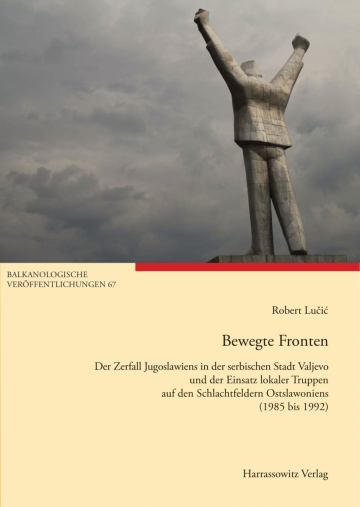Robert Lučić
Completed PhD project
Forschungsstipendiat der Leibniz-Gemeinschaft
The aim of my research project is to analyse how the societal role and the self-understanding of the Yugoslav People’s Army and its military staff changed during the constitutional crisis that took place in the 1980s and early 1990s in the former Socialist Federal Republic of Yugoslavia. The main research question is how this institution, which officially was inducted into the communist project and well-respected within socialist society in Yugoslavia, transformed into a military-political instrument of the Serbian nationalist agenda under the leadership of Slobodan Milošević.
In my research project, I will distinguish between three thematic clusters. (i) Power and Institution: In this cluster I will analyse the role and the function of the Yugoslav People’s Army within the communist society-project and the socialist state-building process after the Second World War. A specific focus lies on the programmatic orders of the Communist Party and on changes that were initiated by the institutional structure of the Yugoslav People’s Army itself. (ii) Army and Society: The second thematic scope will explore the social implementation of the Army in socialist society. Sub-foci of this cluster are the social-biographic meaning of national service, the military staff as a stratum of socialist society and the Yugoslav People’s Army as a socio-economic actor. Based on a local analysis of the Serbian town of Valjevo, I will explore on the one hand the relationship between the population and the military unit in this region, and on the other hand the relevance of the Army for the local economic development of the region of Valjevo. (iii) Conflict and Crisis: Finally, I will synthesise the exposed insights of the previous chapters with the large-scale changes in Yugoslavia in the 1980s and early 1990s. I hope to demonstrate how the societal role and the self-understanding of the Yugoslav People’s Army and the military staff changed depending on the structural and social features of the socialist era and the situational context of the constitutional crisis and the war of dissolution in Croatia in 1991.
project results:
Successful defence of the doctorate on 28 May 2018 at the Humboldt University of Berlin with "summa cum laude". The doctoral thesis was assessed with "magna cum laude" in the overall result.
His dissertation project has resulted in the publication "Dead heroes and living deserters: the Yugoslav People's Army and the public of Valjevo, Serbia, on the verge of war 1991", for which Robert Lučić has been awarded the Huttenbach Prize of the Association for the Study of Nationalities in 2016.
Book publication: Bewegte Fronten. Der Zerfall Jugoslawiens in der serbischen Stadt Valjevo und der Einsatz lokaler Truppen auf den Schlachtfeldern Ostslawoniens (1985 bis 1992), 2020

